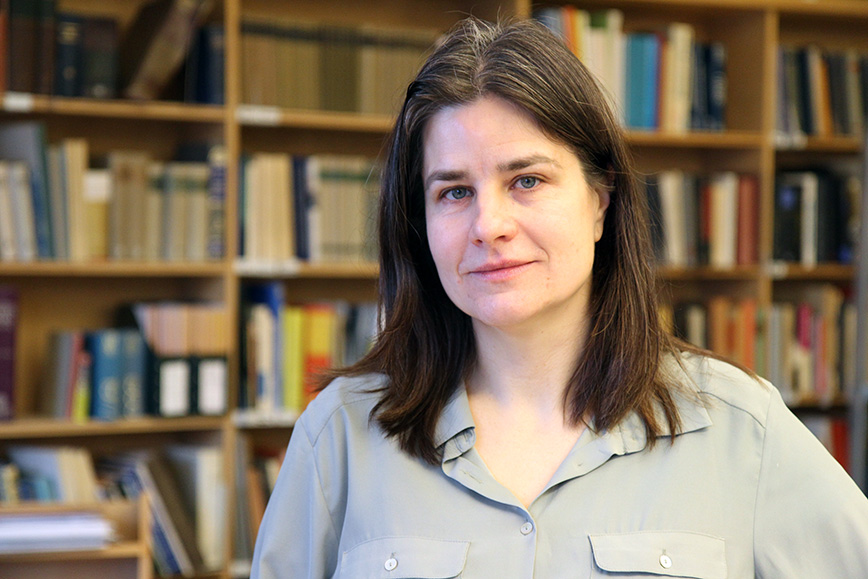Students and supervisors like clarity and deadlines

Hello there, Anita Kullen. In addition to being an associate professor, you're also responsible for the bachelor's thesis course in the EECS School's program for electrical engineering. The course is very popular. What do you think about the fact that you were awarded KTH's 2020 Pedagogical Prize for your efforts?
"I've put a lot of time and commitment into the course, at the expense of my research. So I see the award as a kind of recognition for all that work."
Anita Kullen has been teaching at KTH's Division of Space and Plasma Physics since 2011. Right from the start, she was asked to take over responsibility for the bachelor's thesis course.
"I got free hands to design the course, and it was fun to build it up according to my own ideas. You don't always get that opportunity. That's why I'm delighted to be acknowledged for that particular course," says Anita Kullen.
In this context, she mentions the valuable support she received in her work from her colleagues at the school. In particular, Anita Kullen wishes to thank Joakim Lilliesköld and her former colleague Hans Sohlström.
"In my role as a teacher at KTH, I've learned a lot from working closely with good teaching colleagues," says Anita Kullen.
An orderly approach
The course seminars are customised to focus on the essential core knowledge necessary to carry out an independent project. The goal is to give the students precisely the knowledge they need to structure their project work, write reports and oral presentation, and train in critical analysis and evaluation skills, without taking too much time away from the project work itself.
Anita Kullen highlights the three essential pillars of the bachelor's thesis course. "First of all, there's an internal points system where the student collects points from each part. To pass the course, the student needs to reach a certain number of points, but they also need a passing grade on each piece.
There is also a straightforward process for how both external reviewers and supervisors should provide feedback on the report and the oral presentation.
Finally, the course has clear and firm deadlines for when the different parts must be submitted for assessment.
As for the importance of order, Anita Kullen jokingly refers to her German origins:
"Good order gives the students clear expectations and also helps the supervisors in their work."
Support for supervisors
Clarity is also a recurring theme when Anita Kullen talks about her work with the supervisors. They also need to understand the structure of the course and why, and what's expected of them in their role."
The supervisors receive a supervisor memo and are called to supervisor meetings. In addition, they receive continuous e-mails containing short summaries of the situation and reminders about upcoming deadlines.
"Giving a supervisor clear guidelines and frameworks for their duties helps them to notice at an early stage if something starts to go wrong in a thesis project. Rapid measures can then be put in place that often saves the project," says Anita Kullen.
Anita Kullen structures the presentation day when the students present their bachelor's theses as an authentic conference day.
"Elevating the event in this way sends a signal to the students that it's a big and important event. I also compile all the degree projects in a physical book that they get to keep," says Anita Kullen.
Words: Marianne Norén